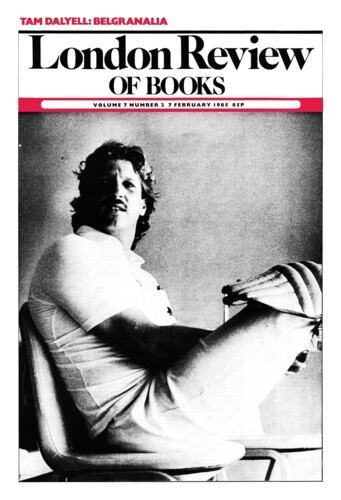Pseudo-Travellers
Ian Gilmour and David Gilmour, 7 February 1985
The most appealing Zionist slogan has always been ‘the land without a people, waiting for the people without a land’. What, in that case, could be more natural than for Palestine to become the land of the Jews? The trouble was that the epigram was not true: Palestine already had a people. On belatedly discovering this, Max Nordau, Herzl’s friend and follower, exclaimed to his leader: ‘we are committing an injustice.’ Much later Arthur Ruppin, who directed Zionist colonisation in the 1920s, warned ‘that Herzl’s concept of a Jewish state was only possible because he ignored the presence of the Arabs.’ Undeterred, Zionists continued to implement what in other circumstances might have been the wholly creditable objective of ruling Palestine and colonising it with Jews. Yet in the circumstances which actually existed – a country already populated with Palestinian Arabs – the building of a Jewish state involved not just brave pioneering or even ordinary imperialism but the displacement of most of the indigenous population and the subordination of the rest. The basic falsity of the slogan has remained to plague political Zionism.’




